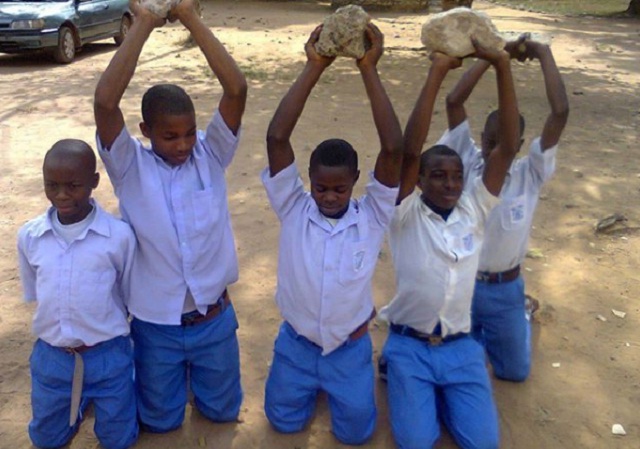
Corporal punishment is outlawed and is punishable under the 1995 Constitution of the Republic of Uganda; the Children’s Act; the Prevention of Torture Act; the Domestic Violence Act; and the Prisons Act.
COMMENT | ANNE ROSE MARY OWOR | Corporal punishment may be referred to as a physical form of disciplinary measure that involves use of a cane to inflict pain on a culprit. Corporal Punishment has widely been used as a form of punishment especially in African Societies.
Internationally, regionally and within the domestic confines of Uganda’s jurisdiction, corporal punishment has been outlawed and is punishable under the 1995 Constitution of the Republic of Uganda; the Children’s Act; the Prevention of Torture Act; the Domestic Violence Act; and the Prisons Act.
Despite the above legal regime, one cannot claim that there is ignorance of the law on corporal punishment. The possible argument could be lack of knowledge on the alternative forms of punishment and the purpose.
Punishment has five recognised purposes according to Libre Texts Social Sciences. That is Deterrence; Incapacitation; Rehabilitation; Retribution; and Restitution.
The choice and purpose of punishment will, therefore, depend on the person administering it.
The cause of the problem would have to first be understood and an appropriate punishment designed for the culprit. In doing so, the purpose of the punishment should be achieved.
Many times unacceptable behavior could be associated with undiagnosed developmental health related challenges, in which case an individual may require medical attention.
In some cases, it is a result of poor up-bringing of a child from early childhood.
It may be observed that in homes where parents provide adequate quality time with their children; sitting together more often as a family; sharing individual strength and weaknesses; the challenges they face out there, i.e. at School; within the Community and even within the homestead, helps in strengthening their character formation and the self-confidence necessary to positively handle whatever challenges they may encounter in life.
Such homes where faith; reconciliation; love; respect for the elders and for each other form a symbol of unity, will normally raise quality children with high expectations of developing into useful citizens in Society.
However, children raised under chaotic-harsh unfriendly environment, tend to harbour bitter memories, filled with negative feelings of hate; lack of respect; rejection; and constant desire for revenge even on innocent victims, as a means of self-consolation.
Many times unacceptable behavior could be associated with undiagnosed developmental health related challenges, in which case an individual may require medical attention. In some cases, it is a result of poor up-bringing of a child from early childhood.
Closeness and openness to children offer parents the opportunity to understand them better; be part of their lives; and closely monitor their growth and character formation so that any peculiar emerging behaviours are appropriately addressed at an early age. ‘YOU REAP WHAT YOU SOW’ – goes the old adage.
It therefore follows that Counselling as a means of Conflict Resolution within Communities would be more effective in behavioral change as compared to Corporal Punishment which is even illegal. And in case the culprit vows not to change and instead change for the worse, the increase of the number of canes will not resolve the problem.
Parents, Guardians, and Leaders, therefore, need to be cautious not to commit an offence by administering Corporal Punishment. Non-violent forms of dispute resolution such as Mediation, may also be explored. Once the more friendly modes prove ineffective, then consideration should be given to refer such matters to the Local Authorities for appropriate action.
Parents, Guardians and Leaders therefore, need to acquaint themselves with the various Laws in place so as to learn how best to enforce disciplinary measures within acceptable parameters that should be able to lead to positive behavioral change.
The Government of Uganda has made a deliberate attempt to ensure that the Communities understand the Laws in place. Specifically, in relation to the Laws that forbid Corporal Punishment, the Government has translated the Constitution of the Republic of Uganda into ‘Dhopadhola’; and copies distributed to ‘Dhopadhola’ speaking Communities. As such, the local Leaders should interest itself in empowering Communities to understand and appreciate the provisions of the Law, so that they do not engage in the illegal act of administering Corporal Punishment.
The children’s Act has also been simplified and the provision that out- laws Corporal Punishment spelt out in the “Guide to the Children’s Act”.
In addition, the Local Council Courts’ Act has been translated in ‘Dhopadhola’ amongst other Uganda Languages; and distributed to the ‘Dhopadhola’ speaking Communities. The Local Council Courts’ Act clearly provides guidance on the nature of punishment that may be given by the Local Council Courts.
Corporal Punishment, therefore, has no place in this era and alternative modes of punishment such as Mediation, Counselling and other non-violent modes may have to be invoked, otherwise the persons who administer Corporal Punishment risk booking themselves accommodation in the Government Prisons.
Get acquainted with provisions of the law; take heed because ignorance of the law is no defence!!!!
****
 ANNE ROSE MARY OWOR (MRS.) IS A FORMER EMPLOYEE OF THE EAST AFRICAN COMMUNITY SECRETARIAT, ARUSHA, TANZANIA
ANNE ROSE MARY OWOR (MRS.) IS A FORMER EMPLOYEE OF THE EAST AFRICAN COMMUNITY SECRETARIAT, ARUSHA, TANZANIA
(1997 – 2013)
 The Independent Uganda: You get the Truth we Pay the Price
The Independent Uganda: You get the Truth we Pay the Price



